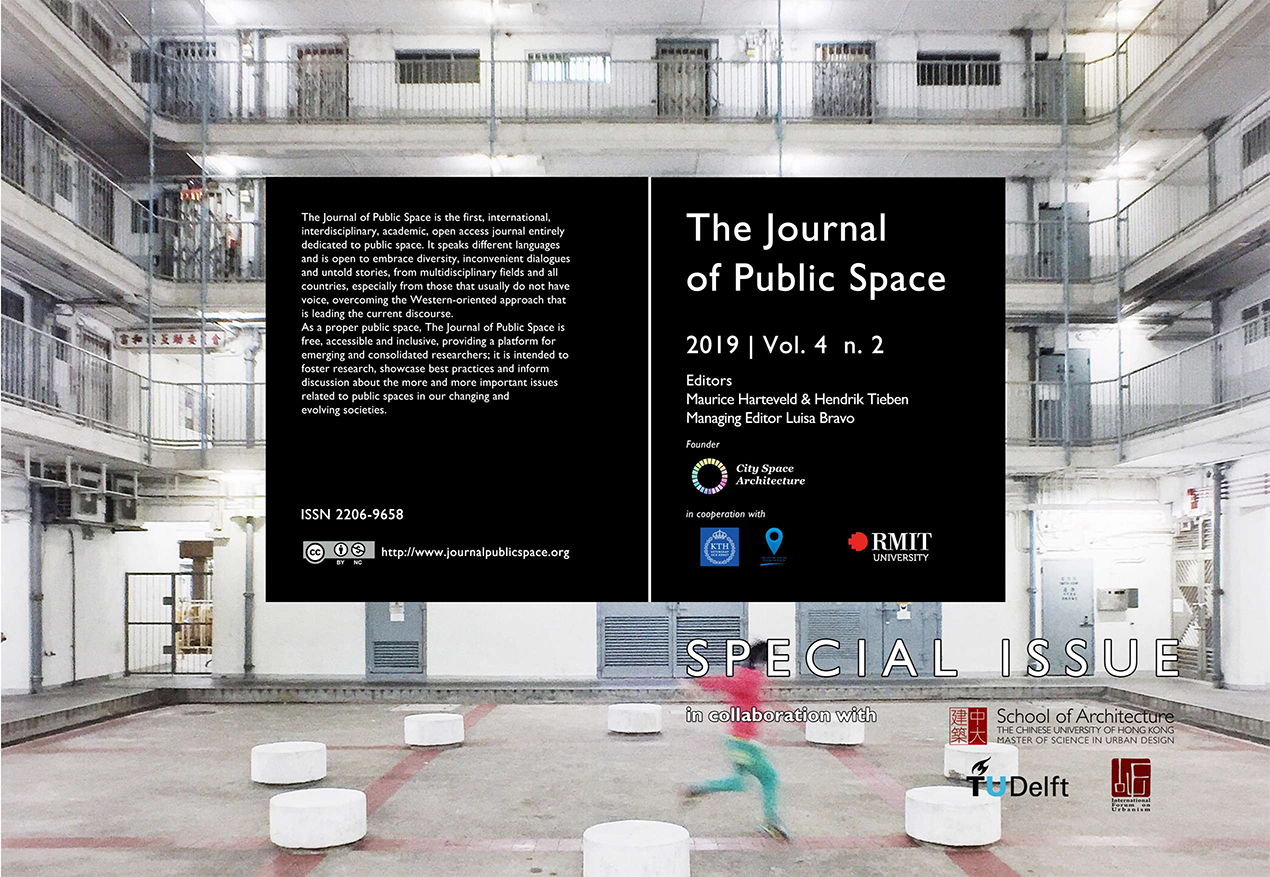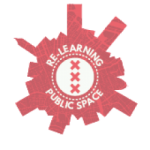In this introduction video, MaartenJan Hoekstra and Maurice Harteveld introduce the issue of urban design and inequality on the neighborhood level and its public spaces. They look at the theory behind the question “does the increase of social mobility and mixing housing add to the inclusivity on the level of the neighborhood?”
Category Archives: democracy
Democratic, Inclusive, Agential Cities

This article highlights the dynamics of values in our reasoning on public space. By means of an epistemological study, illustrated by examples in the Dutch city of Amsterdam, it tests the contemporary premises underlying our ways to safeguard the inclusive, democratic, agential city, and, as such, it aims to update our view on public space. The article raises three subsequent main questions: [i] Is the city our common house as perceived from the Renaissance onward, containing all, and consequently are public spaces used by the people as a whole? [ii] Is the city formalising our municipal autonomy as emphasised since the Enlightenment, in an anti-egoistic manner, and in this line, are public spaces owned by local governments representing the people? And, [iii] is the city open to our general view as advocated in Modern reasoning, restricting entrepreneurial influences, and synchronically, is its public spaces seen and/or known by everyone? – Inclusiveness, democracy, and agentiality are strongholds in our scientific thinking on public space and each issue echoes through in an aim to keep cities connected and accessible, fair and vital, and open and social. Yet, conflicts appear between generally-accepted definitions and what we see in the city. Primarily based upon confronting philosophy with the Amsterdam case for this matter, the answering of questions generates remarks on this aim. Contemporary Western illuminations on pro-active citizens, participatory societies, and effects of among others global travel, migration, social media and micro-blogging forecast a more differentiated image of public space and surmise to enforce diversification in our value framework in urban theory and praxis.
Read full article online:
Harteveld, Maurice (2019) ‘Reviewing Premises on Public Spaces in Democratic, Inclusive, Agential Cities, illustrated by Amsterdam’, In: The Journal of Public Space, 2019, Volume 4, Number 2, pp. 123-143
The Journal of Public Space is open access, contents are freely accessible under Creative Commons Attribution-NonCommercial 4.0 International License (CC BY NC).
For the full issue: Vol. 4 n. 2 | 2019 | FULL ISSUE
Editors: Maurice Harteveld and Hendrik Tieben
Managing Editor: Luisa Bravo
Publisher: City Space Architecture / UN-Habitat
Public Space in the Entrepreneurial City
New public spaces have emerged in the entrepreneurial city. Their existence relates to entrepreneurial action of public governments, of the people, inhabitants of the city, and of entrepreneurial alliances of civic actors. The entrepreneurial way of governmental action led particularly to new spatial conditions and typologies as governments delegated the responsibilities for the production and management of public space to private actors. This extended the debate to the city’s public space in its ubiquitous shopping malls and private residential estates. Secondly, the opportunities which the city offers for the entrepreneurial contributions of general citizens, migrants, and refugees, relate to its public spaces too. Characterised by the proximity of mixed land-uses and flexible building typologies, as well as a well-connected street network and high density, the new urban typologies, effecting public space in their socio-economic nature, are found in many places, using the same models concerning citizens initiatives and popular action. Lastly, new emerging alliances of actors form the relationship of the ‘entrepreneurial city’ and public spaces. These alliances of civil society groups comprise old and new NGO’s, academics and activists, and start-ups of social enterprises launch own initiatives to co-designs alternative community spaces, more affordable and communicative workspaces, and build capacities. Such trends can be seen in cities worldwide too and start to create new forms of public spaces, which facilitate social interaction while creating more micro-economic opportunities.

Read full editorial online:
Maurice Harteveld and Hendrik Tieben (eds) (2019) ‘Public Space in the Entrepreneurial City’, In: The Journal of Public Space (Special Issue), 2019, Volume 4, Number 2, pp. 1-8
Continue reading
Public Space and Inclusive Cities
How do we make public space that is inviting for all? What is public space in open cities? What can we learn from public space abroad? Three interesting lectures to inspire and to take lessons from. Sharing visions on public space at the HUA in Amersfoort.
Continue reading
Mobility and Urban Development
Participants of the 2019 summer school will explore interdisciplinary approaches towards a sustainable integration of designing disciplines for smart urban mobility and the new urban development area Haven-Stad in Amsterdam. They will deal with the following themes: the role and function of smart urban mobility, including mobility as a service (MaaS) and emerging mobility options; travel behaviour of a growing number of users; sustainability challenges and fairness in transport planning; public and semi-public spaces (and social dynamics therein); exploration of alternative, marginal and emerging social uses of urban developments as meeting places and culture; urban integration in the overall mobility system; the interface between architecture and infrastructure with the urban fabric; programming of future transport nodes and the accessibility to and from such transport hubs of all types of smart mobilities (e.g. conventional public transport, shared mobility, autonomous taxis, etc.).
Re-Learning Public Space
An Action Research Event
When: 28th – 30th June, 2018
Where: AMS Institute, Mauritskade 62, 1092 AD Amsterdam

Urban researchers, planners, communication experts, geographers, architects, as well as active citizens, policy makers trace the stories behind contemporary appropriations of public space. They identify related dilemmas and formulate research questions by liaison with locals, designing an alternative city guide inspired by a set of broad, yet timely themes: The ludic team focusses on the affordance of creative reuse an play in the city, grounded in co-creating public space. The circularity team focusses on self-sufficiency in the city, as manifested by places of gathering and sharing and tangible in productive urban landscapes. The informal team focusses on emerging inequalities and politicisation/de-politicisation, as a result of global commons and local governances of urban places. The wild life team shifts focus to the place of animals in our city. The mass tourism team shines the light on the effect of visitors, travelers, and short-stay residents on the public sphere.
Continue reading
Public Space: Changing Values
The Quest for Public Space: Changing Values in Urban Design, The City as Learning Lab and Living Lab
This article highlights the dynamics of values in our reasoning on public space. By means of an epistemological study, it tests the contemporary premises underlying our ways to safeguard the inclusive, democratic, agential city, and, as such, it aims to update our view on urban design. The article raises three subsequent questions: [i] Is the city our common house as perceived from the Renaissance onward, containing all, and consequently are public spaces used by the people as a whole? [ii] Is the city formalising our municipal autonomy as emphasised since the Enlightenment, in an anti-egoistic manner, and in this line, are public spaces owned by local governments representing the people? And, [iii] is the city open to our general view as advocated in Modern reasoning, restricting entrepreneurial influences, and synchronically, is its public spaces seen and/or known by everyone? – Inclusiveness, democracy, agentiality are strongholds in our scientific thinking on public space and each issue echoes through in the practice on urban design. Yet, in an aim to keep cities connected and accessible, fair and vital, and open and social, conflicts appear. Primarily based upon reviewing urban theory and particularly experiencing the Amsterdam for this matter, the answering of questions generates remarks on this aim. Contemporary Western illuminations on pro-active citizens, participatory societies, and effects of social media and micro-blogging forecast a more differentiated image of public space and surmise to enforce diversification in our value framework in urban design.
See:
Harteveld, Maurice G. A. D. (2017) The Quest for Public Space: Changing Values in Urban Design, The City as Learning Lab and Living Lab, IN Tieben, Hendrik, Yan Geng, and Francesco Rossini (eds) The Entrepreneurial City, , Rotterdam: International Forum on Urbanism (IFoU) / Hong Kong: School of Architecture, The Chinese University of Hong Kong, pp. 395-411
or alternative link
